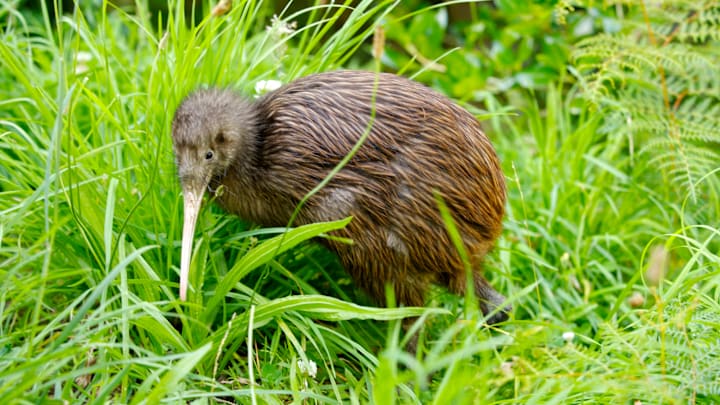You’ve likely heard the term New Zealander referring to people living in the island nation east of Australia. However, they often go by the name Kiwi as well. If you’re curious where the moniker comes from, it all comes down to the country’s national icon.
Marketing and the Military

In short, people from New Zealand are called “Kiwis” because of a native bird that goes by the same name. The large, flightless bird’s brown coloring and long beak are some of its defining features.
The kiwi’s popularity skyrocketed in New Zealand during the 19th century when local companies used pictures of the bird to indicate the origins of their products. Kiwis quickly became the country’s mascot, showing up as symbols on medicine, money, universities, and much more.
Kiwi as a nickname emerged during World War I. Soldiers wore the bird on their military badges, so they became the first group of New Zealanders to adopt the title. It may have also originated from Kiwi Shoe Polish, which was commonly used at the time. Shortly after catching on in the military, the avian nickname spread to members of the general public.
You Also May Like:
- Why Do Seagulls Hang Out in Parking Lots?
- Why Is It Called “Morning Sickness” If It Can Last All Day?
- For the First Time, Wild Blue Jay and Green Jay Produce Colorful Hybrid Offspring in Texas
- Why Does Driving With a Car’s Rear Windows Down Hurt Your Ears?
Add Mental Floss as a preferred news source!
Kiwi Fruit vs. Kiwi Bird: Which Name Came First?
According to PBS, the bird was named “kiwi” before the fruit. Commercial growers of the furry, brown fruit, previously known as the Chinese gooseberry, realized that the food resembled the bird. Thus, they renamed it the “kiwi” in the 1950s for marketing purposes.
